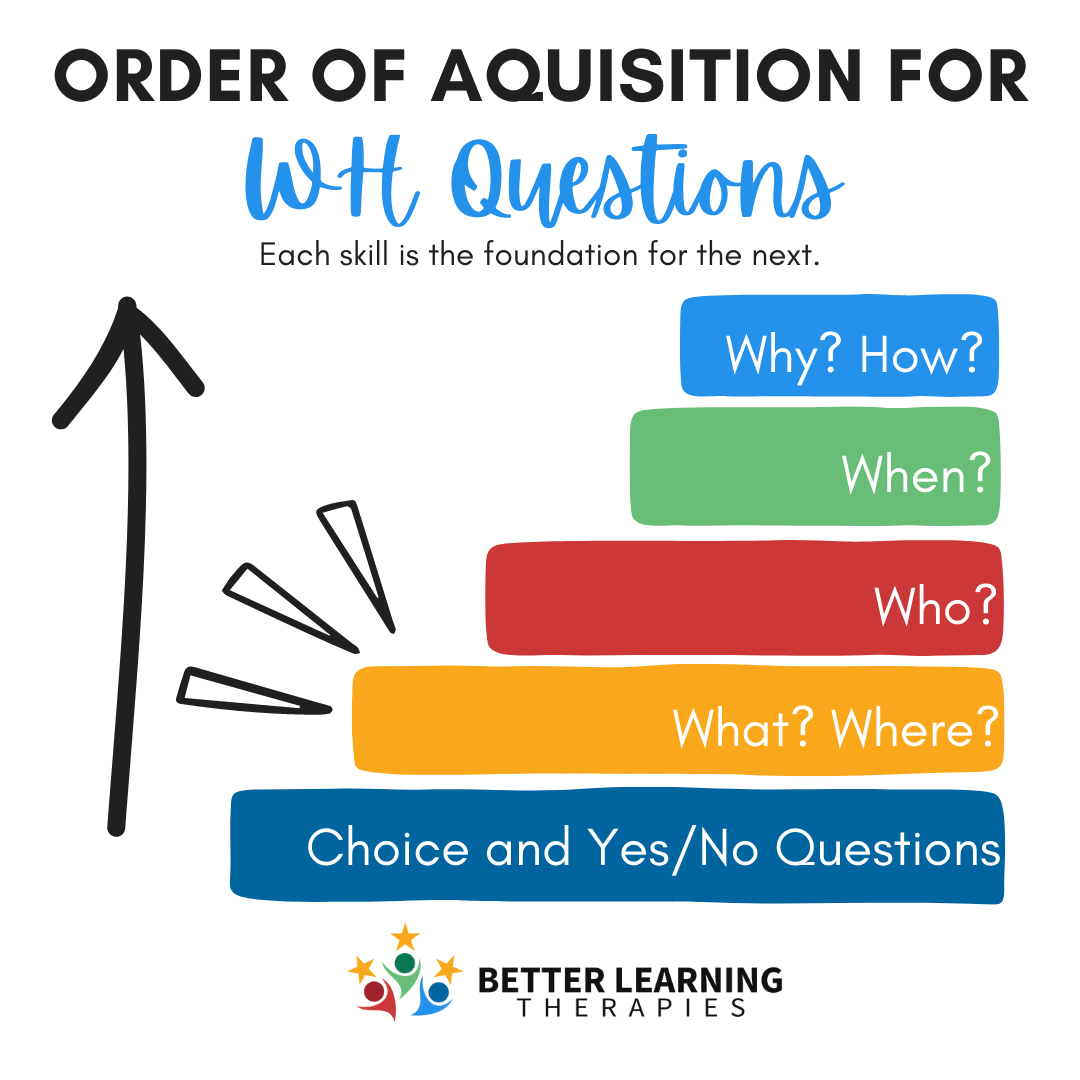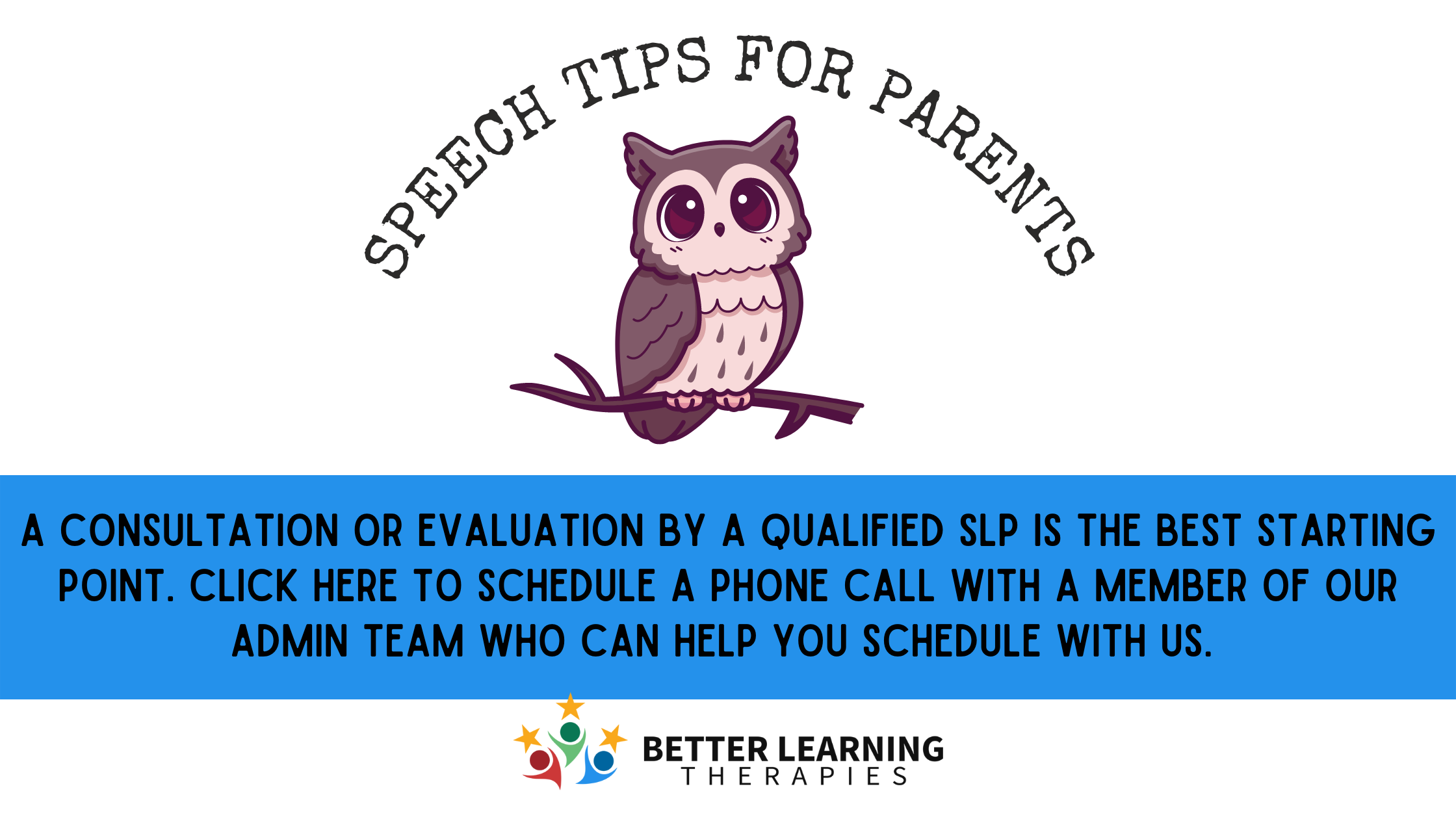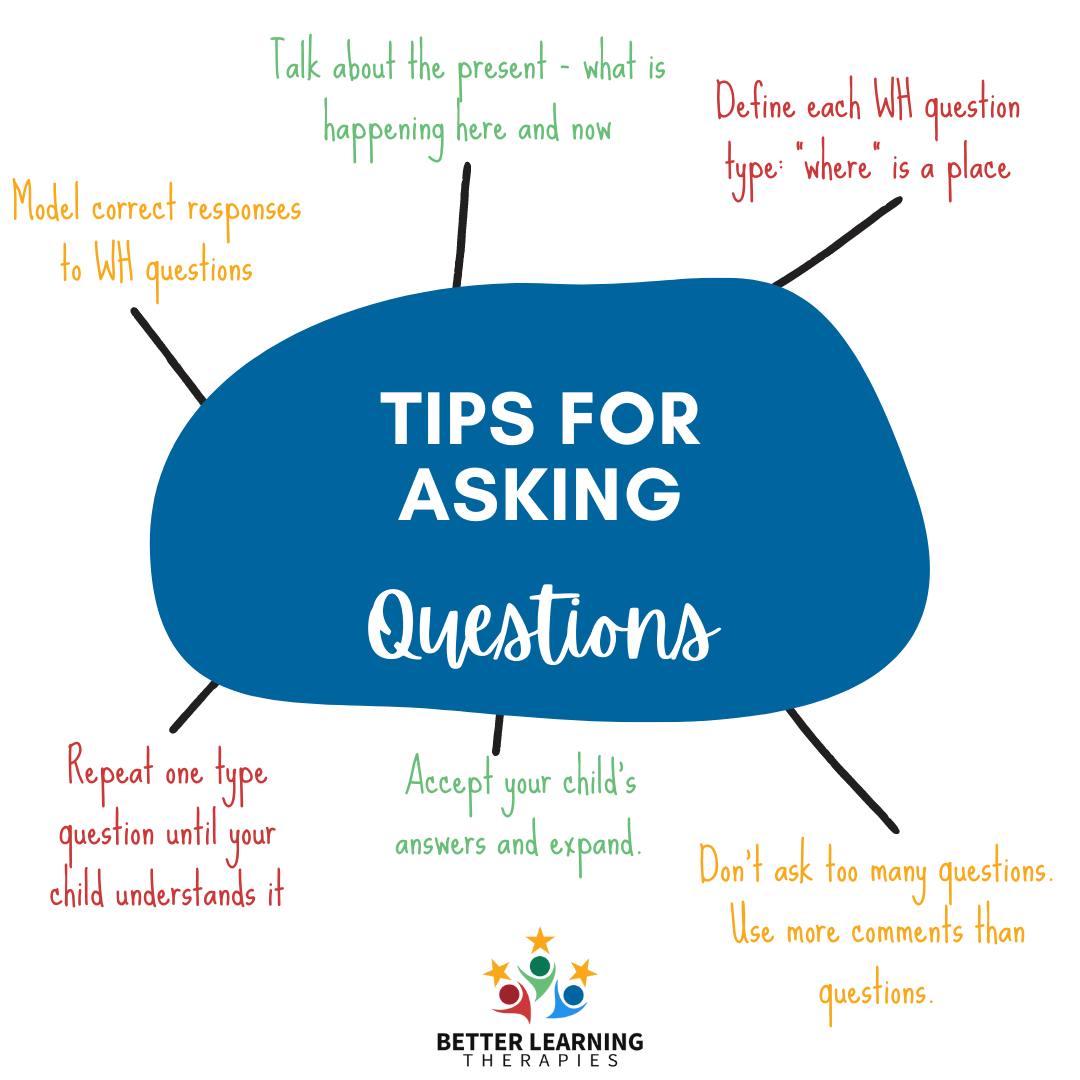Who? Who? WH Questions
Warren Berger, the author of A More Beautiful Question, says kids ask an average of 40,000 questions between the ages of 2 and 5. Questions allow us to participate in conversations, give information, follow directions, and stay safe.
What is a WH question?
English speaking children develop questions in a systematic way, starting first with choice or yes/no questions, and then the “WH” questions, which require more information. Here are the wh- questions:
What is for asking about something (what is that?)
When is for asking about a time (when do you wake up?)
Where is for asking about a place (where are you coming from?)
Why is for asking about a reason (why are you running?)
Who is for asking about a person (who has your toy?)
How is for asking about the process (how do you draw?)
Why are WH questions so important?
“WH questions are a key part of language development for children. Through WH questions, by asking and answering them, we have a conversation. Children must be able to understand these questions to pass information to others and ask things … These questions help children develop their receptive and expressive language skills.” (otisimo.com)
WH questions are more challenging, as they require a more complex verbal response than a yes or no question. WH questions may directly promote vocabulary development by encouraging children to produce verbal responses.
For example, think of the conversation you could have with your child while reading a favorite picture book. The conversation would be more limited if you were only asking yes or no questions. If you expanded to include WH questions, prompting your child to respond to “what is that,” for example, your child would be responding with labels for objects. Researchers have also found that toddlers who were asked more WH questions had a stronger vocabulary and better verbal reasoning skills. (Going Beyond Input Quantity: “WH” Questions Matter for Toddlers' Language and Cognitive Develop)
What makes WH questions difficult to answer?
As most parents could tell you, children often start to ask questions soon after they begin to speak. ‘What’ and ‘Where’ are usually the first 2 ‘WH’ questions that a child can both answer and ask, around 1-2 years of age. A 2-year old should be able to answer a question such as “what is that?” or “where’s the ball?”. An understanding of "When" and "Why" develops later and typically "Why" is the most difficult to master.
Many children struggle to master WH questions. What makes WH questions so difficult to master? First, consider that answering WH questions uses many skills. A child must:
Understand each word
Know the grammar of the question
Make sense of the information and social context
Formulate a response
Put the words together
Give a response
There may be many reasons your child is having difficulty. An “important thing to remember when you’re working with a child who has trouble answering WH questions is that in many cases, it’s less about the WH question words (who, what, where, etc.) and more about the rest of the question. For example, factors like what vocabulary words are used and whether the question requires an inference to answer cause some WH questions to be much more difficult than others. Even a student’s background knowledge can impact their ability to answer some WH questions and not others!” (SpeechyMusings.com)
Practicing WH Questions At Home
Children tend to be curious by nature, and this curiosity is a great asset for them. By being curious, children get to learn about the world and the people that surround them. Children learn language from their social interactions with others and they fulfill that ongoing search for information as they grow up.
Tips
Try to make the wh- questions direct and explicit. You can use pictures and photos. Define each wh- question for your child. For instance, when you are working on ”where”, say ”where means a place” and repeat this until your child grasps the concept. (otsimo.com)
Model answers to questions if your child is not sure how to answer them correctly (eg. ‘what did you have for lunch today? ….You had your sandwich and an apple’). Repeat the question to see if your child answers correctly after modeling. (learninglinks.org)
Accept the most basic single-word answers and expand on them. Please remember to encourage their answer. Parent: "What are you doing with your ball?" Child: "Playing." Parent: "Yes, you are playing! Playing with the ball." (blog.appystore.in)
Common Mistakes
Asking too many questions - WH questions are fun and important, but it is possible to ask too many questions. We recommend balancing asking questions with a simple conversation that flows and builds on whatever your child wants to talk about.
Changing the question word - If your child is having trouble answering, stick to one WH question word at a time to reduce confusion.
Asking abstract questions - Focus on the here and now. It is much easier to learn a new concept by using objects or people who are right in front of you rather than thinking about something or someone you can’t see.
Activities to Try At Home
WH Question Cards - Fall Edition
Owl Books Read one of these fun owl-themed books and pause to ask and answer questions. Read the book with lots of animation and excitement. After reading for a bit, ask questions like:
Who is in the picture?
What is happening?
What are they doing?
Where is _____?
Why do you like this picture?
How does this picture make you feel?
Learn the ASL signs for WH questions. Some children may learn better when they are incorporating multiple senses into the experience.
Play Guess Who This type of game can be adapted in many ways to practice asking "Who questions", so get creative! If you don’t have the Guess Who game and you want to save money, you can cut out the faces of people from a magazine and place them in front of the child. Then just have a dialogue about the people...“Who has brown hair?” (home-speech-home.com)








